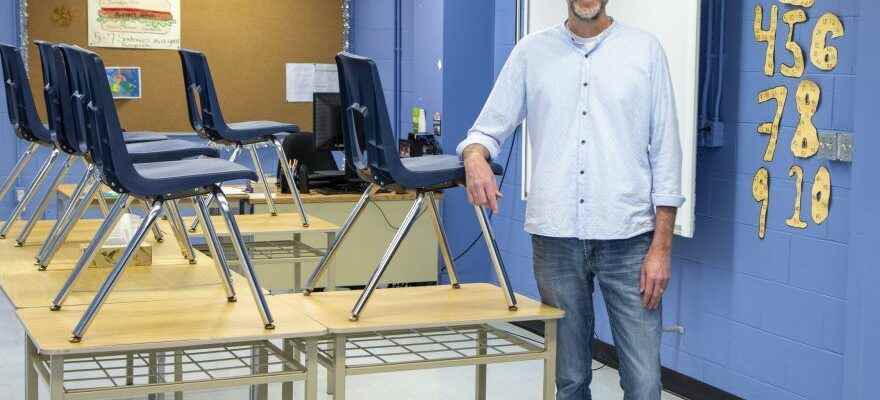
Forone student, it was the first time anyone had sung Happy Birthday to them or presented them with a cake.
Another wondered what to do with his dirty dishes after eating in a restaurant with others in the program.
“How could he not know this?” says Chris Morris, a social worker with a program called U-Turn. “He was a 16-year-old kid who had never been in a (non-fast food) restaurant.”
Such are the backgrounds of some of those who end up in the Thames Valley District school board’s U-Turn, a place where students with long suspensions, expulsions and troubled pasts get a chance to turn their lives around and get an education.
It has been an exceptionally busy year at U-Turn, located in the GA Wheelable Adult Education Center in southeast London.
“This has been one of the busiest years in our program,” Morris said. “We believe it is due to COVID and is a reflection of kids struggling socially and emotionally, post-pandemic.
“They have been isolated and did not learn social skills during that time.”
Usually kids enrolled there have been suspended for more than 10 days for issues such as fighting, bad language and behavior problems, and acting out or making threats.
“It’s usually the tougher stuff — that’s usually our profile,” Morris said. “Usually there is a long history of troubles.”
Tea Thames Valley boardbeing legally required to provide all students with an equal opportunity for an education, established U-Turn in 2007.
“That is why this program exists — to give them a chance at an education,” Morris said.
The program — staffed by two teachers, a social worker, an educational assistant and a school support worker — takes a different approach from traditional classrooms, he said.
About 15 kids attend the physical program, which includes two classrooms, a kitchen, a gym and laundry facilities where the students, who may be living on the streets, can wash their clothes.
Another teacher visits a handful of students in the community who aren’t able to be in a classroom physically, he said.
U-Turn also provides snacks and meals and even sends food home if a student needs it, Morris said.
“Our kids come to us with significant issues in their personal lives,” he said. “There are major issues with families. A number of them have parents who are dead or not involved in their lives. Some are raised by extended family. Lots of poverty, families barely able to meet basic needs and a lot of learning disabilities.
“We don’t have too many with solid academic abilities.”
By the time the students arrive at U-Turn, they’re “just angry kids who have no people in their lives to support them,” Morris said, adding that for many, U-Turn is “the safest place for them.”
“A big piece for us is building relationships — that’s core to everything here. These kids come in and don’t trust,” he said. “They come in and we take them at face value, we listen to them and try to understand what they are going through.”
Part of Morris’s job is to connect the kids with outside organizations, such as counseling services, so when they leave U-Turn, they “have more options than before,” he said.
“If they live in chaos, they are going to come to school in chaos. We try to connect them to community supports.”
Learning life skills, such as putting together a resume or taking courses in food handling, is essential to their time at U-Turn.
“We talk to them about safe sex and consent and relationships,” Morris said. “We take on almost a parental role for kids who don’t have a functional person in their life like that — try to steer them in the right direction.”
And success has to be measured in smaller victories, he said.
“For many of our kids, when they get here, they haven’t had any form of success. There are arguments and fights. There is very little classroom work,” he said. “For us, success is getting them to engage in school again. We have kids leaving here who have obtained credits for the first time.”
As the students transition back to traditional classrooms, Morris said U-Turn staff continue to work closely with them.
“We have to really advocate for them, to give them a chance,” he said. “And we stay involved if they want us to.
“One of our kids made it on the high school basketball team, so I went to a game to show him how exciting it was and let him know how proud we are.”
